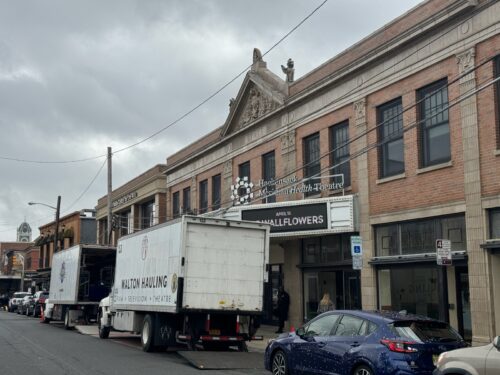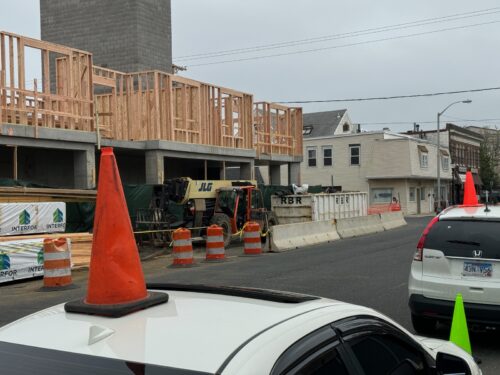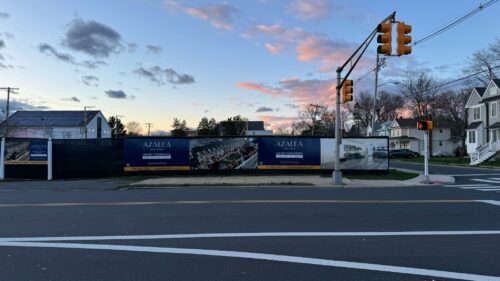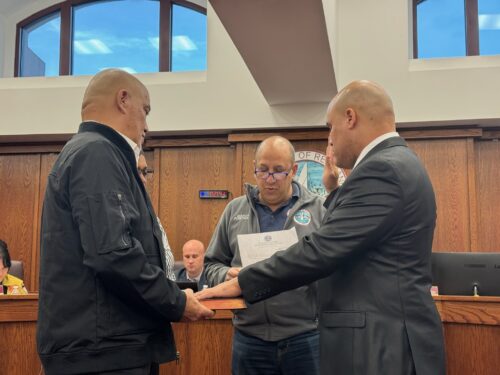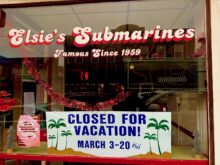Two weeks after his election, and six weeks before he’s to be sworn in, Mayor-elect Pat Menna moved to put his stamp on Red Bank Monday night, introducing a plan to expand the special-assessment business district known as RiverCenter to the West Side.
Casting the move in terms of rising competition with nearby towns for shopping and entertainment dollars, Menna and RiverCenter executives said the plan, if approved by the Borough Council, would push the western edge of the Special Improvement District west along Monmouth to Bridge Avenue.
On Bridge, the district would reach south to Chestnut Street and north to the Navesink River. Also included would be the Oyster Point and Molly Pitcher hotels, and the new Hovnanian headquarters.
Excluded entirely is Shrewsbury Avenue.
Given what he termed the “positive” reception to the idea, Menna says he hopes to have an ordinance introduced, passed an enacted before he takes office on Jan. 1.
“The only time to move is the present,” he told redbankgreen this morning.
With RiverCenter’s 15-year record in transforming the downtown from a forlorn quarter into a more thriving marketplace on his side, Menna’s plan got a warm reception from 75 or so residents and merchants who gathered at the Two River Theater to hear about it.
The plan also got a boost from departing Mayor Ed McKenna, who lavished praise on RiverCenter, which manages the district’s $434,000 budget. He also reminded the audience that the original district plan floated more than 16 years ago was hotly contested.
“People stood up and said, ‘I don’t see how this is going to benefit me a nickel,'” McKenna said. “There were an awful lot of naysayers who swore RiverCenter would not work.”
Now, said McKenna, “What concerns me most is the forthcoming competition” from new shopping areas such as Pier Village in Long Branch, and downtown revival efforts in Asbury Park and Belmar. “Everybody says, ‘gee, we want to be another Red Bank.'”
Among the concerns raised last night were whether the additional levy imposed in the district would apply to residents or owners of multifamily houses. It would not, said Menna. Only owners of properties used as businesses would be taxed, at the rate of 20.4 cents per $100 of assessed property value, or $1,020 per year for a property worth $500,000.
Several members of the public complained that the downtown has too many store vacancies and too much turnover to count RiverCenter as a success. But RiverCenter Executive Director Tricia Rumola said there are only three empty stores that are unleased, and that churn is a normal part of a retail environment. “It’s a really healthy downtown,” she said.
Other questions had to do with governance and proportional representation on the RiverCenter board of directors, which now has 30 members.
Menna said that, in time, “the goal is to have the entire comercial district” on the West Side included in the zone, but not now.
“What you have to do is increase it incrementally,” said Menna, who recalled that an early plan for the existing special improvement district called for inclusion of all commercial properties in town, an idea that was shot down as too far-reaching. “The consensus now is to take it a step at a time.”
“We would love to include to include Shrewsbury Avenue, but it took 16 years to get to this point,” said Rumola.
Menna, who was assailed during the mayoral campaign by Republican Councilman John Curley as a wet-finger-in-the-wind when it comes to deciding how to vote on controversial matters, said Monday’s airing of the RiverCenter plan is representative of how he intends to lead.
“I thought the (public’s) input should be solidified first,” he said.
Curley, who lost the mayor’s race to Menna by little more than 100 votes, did not attend.







